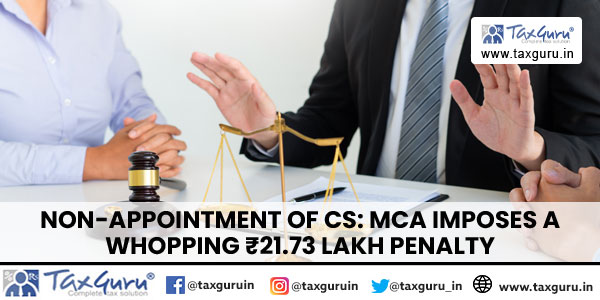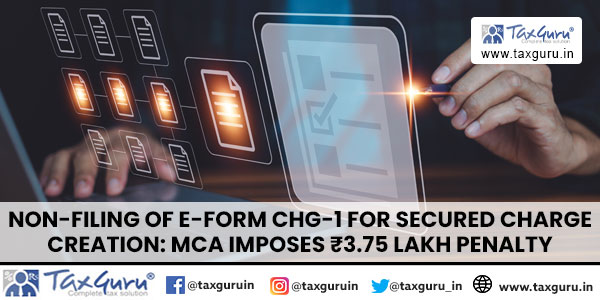
CBEC has empowered CAs & CMAs (nominated u/s 72A) to conduct service tax audits on behalf of service tax department.
Statutory provisions- Rule 5A(2) of Service Tax Rules, 1994 authorises department to conduct audit by CAG or any audit party deputed by Commissioner & the assessee was bound to produce the specified documents within 15 days from date of demand( of the prescribed documents) the said auditor.
Legal History: Various judicial pronouncements have been made recently in the context of service tax audits. Reliance in this regard may be placed on :
- ACL Education Centre Pvt. Ltd. & Ors. Vs. Union of India [2014-TIOL-120-HC-ALL-ST] – Hon’ble Allahabad High Court held that audit under service tax is to be conducted by Chartered Accountants/ Cost Accountants only and not by officers of the Department
- SKP Securities Ltd. Vs. DD (RA-IDT) & Ors. [2013-TIOL-38-HC-KOL-ST] – Hon’ble Kolkata High Court held that audit of private assessee can’t be undertaken by CAG .
- Travelite (India) Vs. Union of India & Ors.– Hon’ble Delhi High Court held that rule 5A(2) is bad in law.
Amendment:
Vide Notification No. 23/2014- ST dated- 05.12.2014, CBEC has amended rule 5A(2) and the pronouncement of Allahabad High Court has been followed principally & CAs/CMAs have been made empowered to conduct service tax audits.
Furthermore, earlier limit of 15 days for production of specified documents has now been replaced with the time limit specified by the concerned audit party/CAG/CAs/CMAs, as the case may be.
The said notification is as follows :-
NOTIFICATION No. 23/2014-SERVICE TAX
Dated- 5th December, 2014
G.S.R. (E).- In exercise of the powers conferred by clause (k) of sub-section (2), read with sub-section (1) of section 94 of the Finance Act, 1994 (32 of 1994), the Central Government hereby makes the following rules further to amend the Service Tax Rules, 1994, namely:-
1. (1) These rules may be called the Service Tax (Third Amendment) Rules, 2014.
(2) They shall come into force on the date of their publication in the Official Gazette.
- In the Service Tax Rules, 1994, in rule 5A, for sub-rule (2), the following sub-rule shall be substituted, namely:-
“(2) Every assessee, shall, on demand make available to the officer empowered under sub-rule (1) or the audit party deputed by the Commissioner or the Comptroller and Auditor General of India, or a cost accountant or chartered accountant nominated under section 72A of the Finance Act, 1994,-
(i) the records maintained or prepared by him in terms of sub-rule (2) of rule 5;
(ii) the cost audit reports, if any, under section 148 of the Companies Act, 2013 (18 of 2013); and
(iii) the income-tax audit report, if any, under section 44AB of the Income-tax Act, 1961 (43 of 1961),
for the scrutiny of the officer or the audit party, or the cost accountant or chartered accountant, within the time limit specified by the said officer or the audit party or the cost accountant or chartered accountant, as the case may be.”
(Himani Bhayana)
Under Secretary to the Government of India
[F.No 137/46/2014-Service Tax]
Note:- The principal rules were published in the Gazette of India, Extraordinary, Part II, Section 3, Sub-section (i) vide notification No. 2/94-SERVICE TAX, dated the 28th June, 1994 vide number G.S.R. 546 (E), dated the 28th June, 1994 and last amended vide notification No.19/2014-SERVICE TAX, dated the 25th August, 2014 vide number G.S.R. 614 (E), dated the 25th August, 2014.



























The remarks of Sanotosh are wise and balanced. I disagree with him that Commissioner or CAG can not send audit parties to the premises of the assessee. If the audit party can not go to the premises, how the audit can be conducted ?
There are several instances when courts or ITAT passed strictures on the Chartered Accountants for negligence and signing the certificates blindly. Does it mean all the Chartered Accountants are negligent ? It is quite improper to write off departmental officers as unqualified. In fact, they are more qualified than Chartered/Cost Accountants with just bookish knowledge. It is the fault of the department for not using talented and dedicated officers in a better way. When the same assessee is audited by the talented officers and Chartered accountant independently, truth will come out who is better.
The audits by chartered/cost accountants can not be made mandatory just to provide income to them. Revenue collected can be spent just to provide income to some sections.
This type of practice of Making Rules and Regulation with a delegated authority of Law is very bad practice since these Rules and Regulations do not have the sanctity of the Parliament and in a way is theft of Democracy.
How can we stop this type of practice of executives?
This type of practice of Making Rules and Regulation with a delegated authority of Law is very bad practice since these Rules and Regulations do not have the sanctity of the Parliament and in a way is theft of Democracy.
This type of practice of Making Rules and Regulation with a delegated authority of Law is very bad practice since these Relues and Regulations do not have the sanctity of the Parliament and in a way is theft of Democracy.
This type of practice of Making Rules and Regulation with a delegated authority of Law is very bad practice since these Relues and Regulations do not have the sanctity of the Parliament and in a way if theft of Democracy.
The amendment only added new set of professionals like CAs and Cost Accountants to Rule 5A(2) to conduct audit which facility of course is available under Section 72A. The amendment did not bar departmental officers or CAG officers from conducting Audit, even after the court judgments. I agree with Mr Santosh views with regard to professional abilities of CAs and lawyers.
The amended rule did not change anything for the Commissioner and the CAG. The only change is making a mention of CAs and CWAs in the newly inserted Rule and reference to section 72A. In any case, section 72A empowered Commissioner to conduct special audits through CAs and CWAs empaneled by the Commissioners. CAs and CWAs cannot audit the records of the Service Tax assessees without reference by the Commissioner citing the reasons for such reference, in terms of section 72A of the Finance Act, 1994. So, the current amendment did not change much. This was possible even without this Rule 5A(2). Section 72A stands independent of the Rules. Even after this amendment, the Commissioner or CAG cannot send their audit parties to the assessees’s premises. And to Mr. K C Agarwaal, your comment that officials are not qualified persons and so cannot conduct audit is not in good taste. If that is so, then even CAs and CWAs are not qualified to deal with tax law because it is law and only lawyers can deal with law. So, when you pass comments make it more balanced.
IN OUR VIEW, THE AUDIT UNDER SERVICE TAX SHOULD BE MADE COMPULSORY, AND IT SHOULD BE CONDUCTED ONLY BY CHARTERED ACCOUNTANT/COST ACCOUNTANT ONLY. BECAUSE C A G IS A GOVT BODY, AND OFFICIALS ARE APPOINTED IN A ROUTINE WAY, ONLY HEAD OF C A G ARE BEING QUALIFIED.AUDIT PART OF C A G ARE NOT REQUIRED TO QUALIFY PROFESSIONAL EXAMINATION, HOW NON QUALIFIED PERSON CAN BE EQUAL TO COST ACCOUNTANT, COMPANY SECRETARY, CHARTERED ACCOUNTANT. I REQUEST THE CONCERNED AUTHORITY TO CONSIDER THE MATTER, AND ONLY QUALIFIED PERSON SHOULD BE ASKED FOR AUDIT
K C AGARWAAL